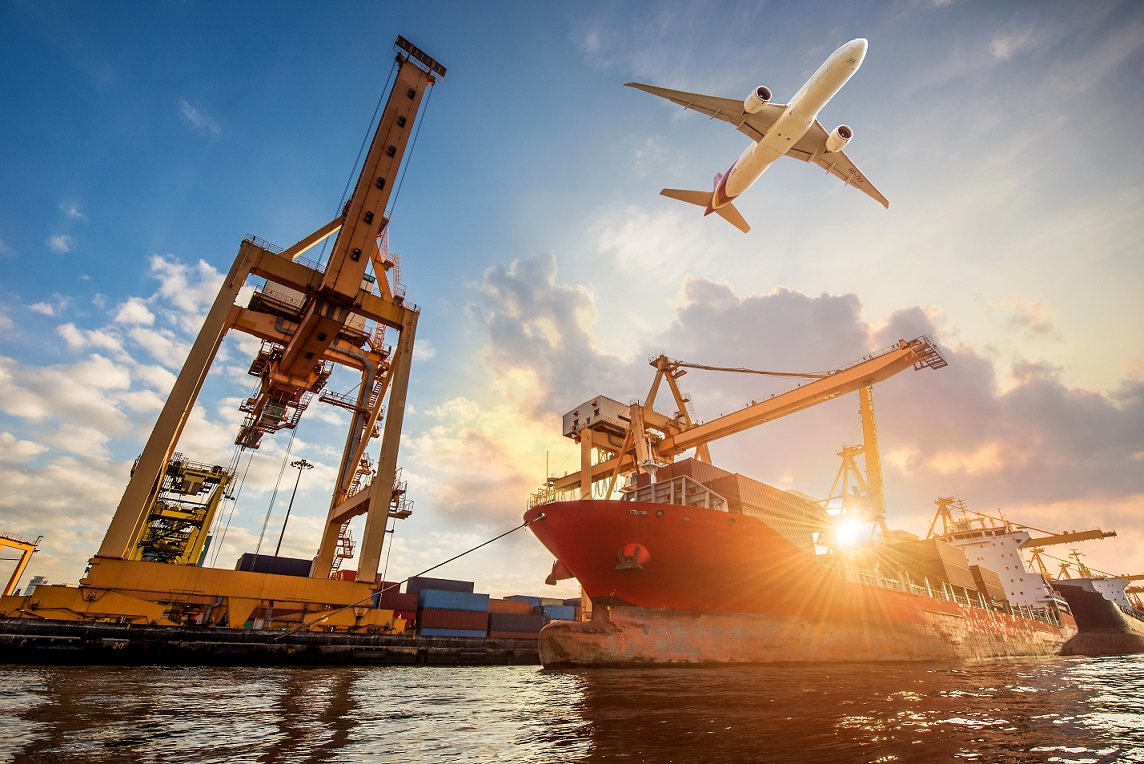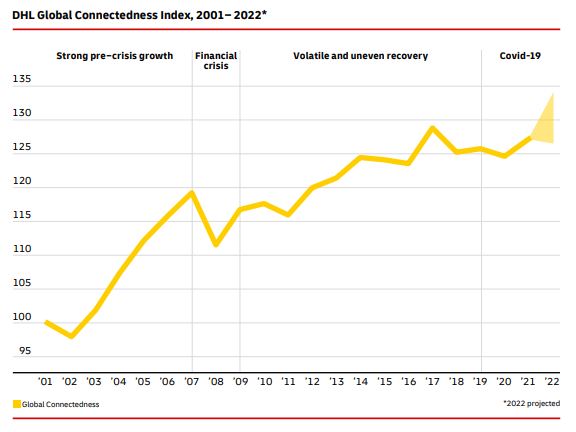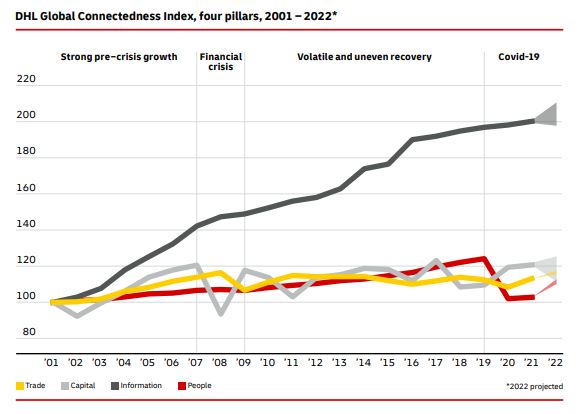No signs of the end of globalisation… yet
21 / 03 / 2023

Source: Shutterstock
A recent study released by DHL Express and New York University’s Stern School of Business appears to show that globalisation has yet to go into reverse contrary to many people’s expectations.
The report measures globalisation by looking at flows of trade, capital, information and people to create a global connectedness index.
The index declined in 2020 due to the Covid pandemic but rebounded to above pre-pandemic levels in 2021 and expectations are that it will increase in 2022, despite the effects of the war in Ukraine.
The report states that many had expected disruptions, such as the Covid-19 pandemic, the China-US trade war, the Ukraine war and the UK’s exit from the European Union, to lead to the end of globalisation.
DHL Express chief executive John Pearson said: “The latest DHL Global Connectedness Index data clearly debunks the perception of globalisation going into reverse gear.
“Globalisation is not just a buzzword, it’s a powerful force that has transformed our world for the better. By breaking down barriers, opening up markets and creating opportunities, it has enabled individuals, businesses and entire nations to flourish and thrive like never before.
“As we continue to embrace globalisation, we can build a brighter future that benefits us all, creating a world that is more interconnected, more prosperous and more peaceful than ever before.”

Source: DHL
The report shows that the average distance traversed by trade, capital, information, and people flows has increased over the past two decades, and trade flows even stretched out over longer distances during the Covid-19 pandemic.
The only category that displays a clear recent shift toward regionalisation is people flows.
Steven Altman, director of the DHL initiative on globalisation at NYU Stern’s Center for the Future of Management, said: “It remains an open question whether trade patterns will become significantly more regionalised in the future.
“Many companies and governments are focused on nearshoring to regionalise supply chains, and there are substantial business benefits that can come from regionalisation.
“On the other hand, more than half of all trade already happens within regions, and the benefits of long-distance trade are still important, especially as inflation remains high, economic growth has slowed, and container shipping rates have come back down.”
One area that has changed over the past few years has been the relationship between China and the US.
The report found evidence of a decoupling between the two countries across most types of international flows. However, this decoupling has not—or at least not yet—led to a broader fragmentation of international activity between the two.
“Looking at 11 types of trade, capital, information, and people flows (such as merchandise exports, M&A transactions, and scientific research collaboration), the share of US flows with China declined for eight out of 11 types since 2016,” the report found.
“In the same period, the share of China’s flows with the US decreased for seven out of 10 types with data available for China. Several of these were large declines.
“Nonetheless, the US and China are still linked by far greater flows than any other two countries that do not share a border.
“Further, the data shows that, so far, the decoupling between these two countries has not led to a broader fragmentation of global flows between rival blocs of countries.”

Source: DHL














